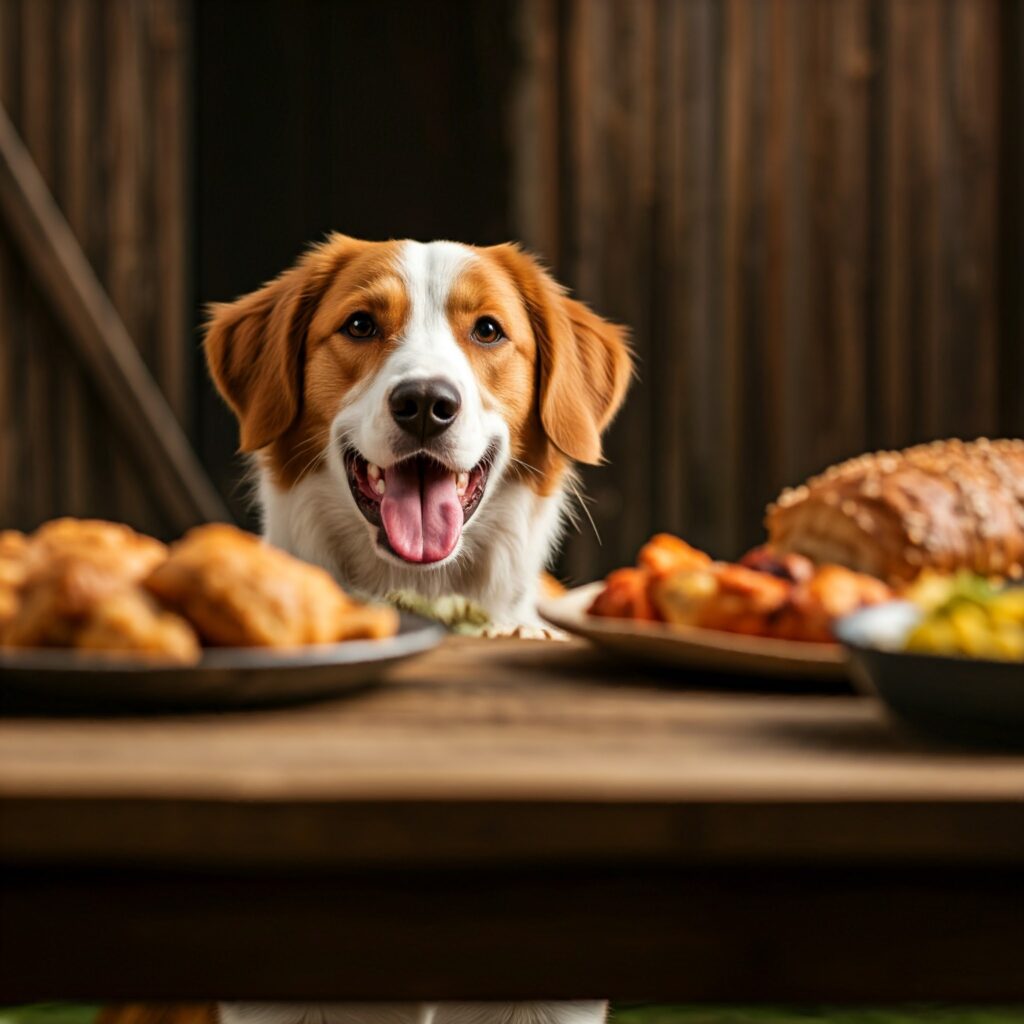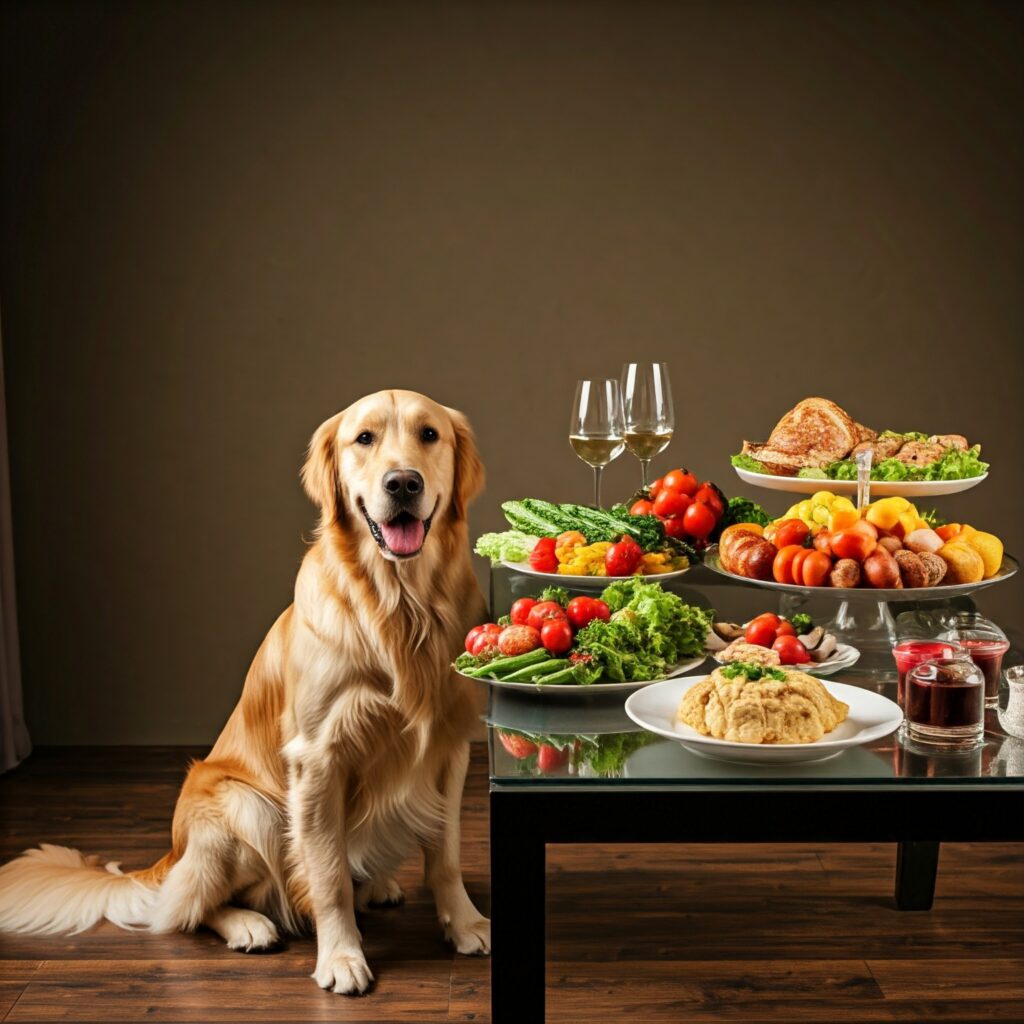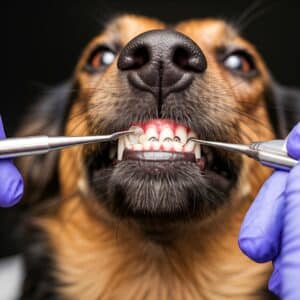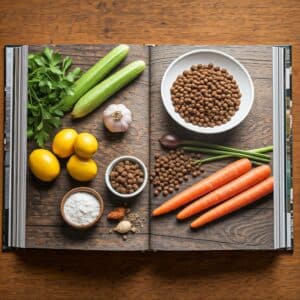As dog owners, we often find ourselves sharing our meals with our furry companions. While many human foods can be safe and healthy for dogs, it’s crucial to understand which ones are safe and how to introduce them properly. In this guide, we’ll explore a variety of human foods that are safe for dogs, the health benefits they offer, and some precautions to keep in mind.
Understanding Dog Nutrition
Dogs have different nutritional needs than humans. Their diets are primarily based on proteins, healthy fats, and certain carbohydrates. While commercial dog food is formulated to meet these needs, certain human foods can supplement their diet and provide variety. However, some human foods can be harmful or toxic to dogs, so it’s essential to know what’s safe.
Safe Human Foods for Dogs
1. Fruits
Fruits can be a healthy treat for dogs, offering vitamins and fiber. Here are some dog-friendly options:
- Apples: Rich in vitamins A and C, apples are a great snack. Remove the seeds and core before feeding, as seeds contain cyanide, which is harmful.
- Blueberries: Packed with antioxidants, blueberries are a low-calorie treat that dogs love.
- Bananas: High in potassium and vitamins, bananas can be given in moderation due to their sugar content.
- Watermelon: Hydrating and refreshing, watermelon is safe for dogs if the seeds and rind are removed.
2. Vegetables
Many vegetables are not only safe for dogs but also offer numerous health benefits:
- Carrots: Crunchy and low in calories, carrots are great for dental health and are rich in beta-carotene.
- Green Beans: These are low-calorie, high-fiber vegetables that can be given raw or cooked.
- Sweet Potatoes: Cooked sweet potatoes are a nutritious source of fiber and vitamins. Avoid giving them raw, as they can be difficult to digest.
- Cucumbers: Refreshing and hydrating, cucumbers are low in calories and can be a great snack.
3. Grains
Some grains can be beneficial for dogs in moderation:
- Brown Rice: Easily digestible, brown rice can help dogs with gastrointestinal issues. It’s a good source of energy.
- Oatmeal: High in soluble fiber, oatmeal is great for dogs with bowel irregularities. Ensure it’s cooked and served plain.
- Quinoa: This superfood is packed with protein and can be a nutritious addition to your dog’s diet.
4. Proteins
Proteins are essential for your dog’s health, and several human protein sources are safe:
- Chicken: Cooked, unseasoned chicken is a great source of protein. Remove all bones before serving.
- Turkey: Similar to chicken, cooked turkey (without skin and bones) can be a healthy treat.
- Fish: Salmon and sardines are safe when cooked properly. They provide omega-3 fatty acids, which are great for skin and coat health. Avoid fish bones and serve in moderation.
- Eggs: Cooked eggs are a nutritious source of protein. Make sure they’re fully cooked to avoid the risk of salmonella.
5. Dairy
Some dogs can tolerate dairy, but it varies from dog to dog:
- Yogurt: Plain, unsweetened yogurt can be a probiotic treat. Check for lactose intolerance in your dog before serving.
- Cheese: Many dogs enjoy cheese as a treat. Use it sparingly, as it can be high in fat and calories.
Foods to Avoid
While many human foods are safe, others can be harmful or toxic to dogs. Here are some foods to avoid:
- Chocolate: Contains theobromine, which is toxic to dogs and can cause serious health issues.
- Grapes and Raisins: These can cause kidney failure in dogs, even in small amounts.
- Onions and Garlic: Both can damage red blood cells and lead to anemia in dogs.
- Avocado: Contains persin, which can be toxic to dogs.
- Alcohol: Even small amounts can be harmful and lead to serious health problems.
- Caffeinated Foods: Coffee and tea can be toxic to dogs, causing restlessness and increased heart rate.

Tips for Introducing Human Foods
- Start Slow: When introducing any new food, start with small amounts to see how your dog reacts. Monitor for any signs of digestive upset.
- Avoid Seasonings: Always serve foods plain. Avoid spices, salt, and sauces, which can be harmful to dogs.
- Keep Portions Small: Treats should only make up about 10% of your dog’s daily caloric intake. Too much can lead to obesity and health issues.
- Consult Your Veterinarian: If you’re unsure about a specific food, consult your vet. They can provide guidance based on your dog’s health and dietary needs.
- Use as Rewards: Incorporate safe human foods as training treats or rewards to motivate your dog during training sessions.
Health Benefits of Human Foods
Introducing safe human foods into your dog’s diet can have several health benefits:
- Improved Coat Health: Foods rich in omega-3 fatty acids, like salmon and flaxseed, can enhance coat shine and reduce itching.
- Better Digestion: Fiber-rich foods like sweet potatoes and green beans can promote healthy digestion and regular bowel movements.
- Weight Management: Low-calorie treats like carrots and cucumbers can help keep your dog satisfied without leading to weight gain.
- Enhanced Immunity: Fruits and vegetables rich in antioxidants can support your dog’s immune system and overall health.
Conclusion
Feeding your dog safe human foods can add variety to their diet and provide essential nutrients. By choosing healthy options and avoiding harmful foods, you can enrich your dog’s meals while keeping them safe. Always introduce new foods gradually and consult your veterinarian for personalized advice.
With a little knowledge and care, you can share your meals with your furry friend in a way that benefits their health and happiness. Enjoy the bonding moments that come with sharing safe, nutritious foods!






